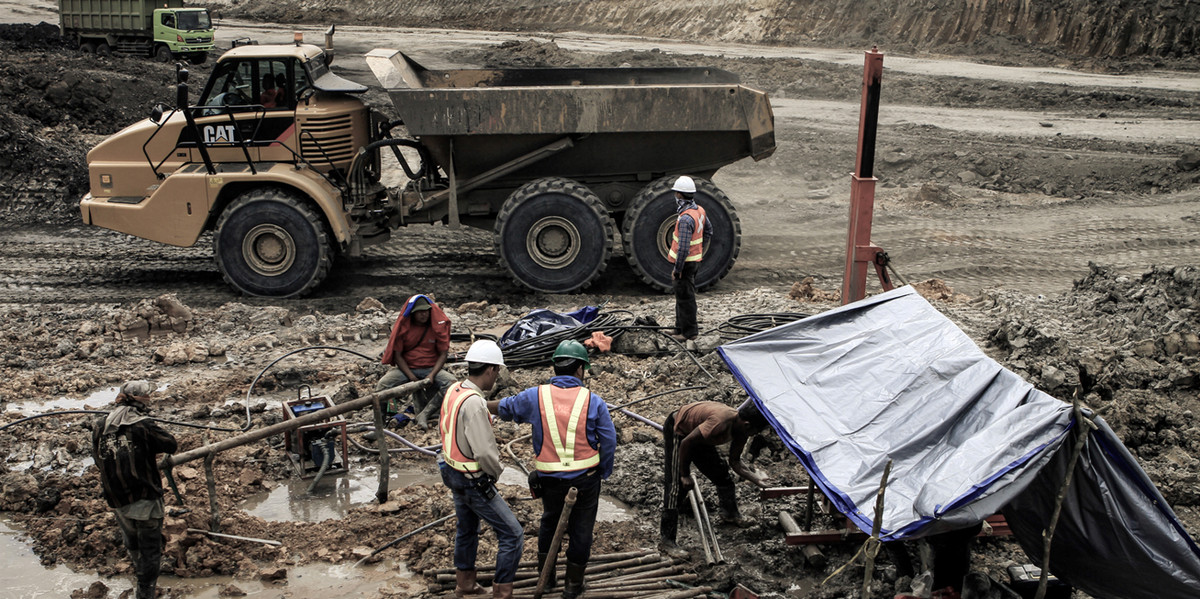Catholic NGOs call on EU lawmakers to strengthen Commission proposal
CIDSE and its member organisations welcome the publication of the Corporate Sustainabilty Due Diligence Directive proposal by the European Commission while calling on the European Parliament and the Council to strengthen the text on the table.
The highly anticipated draft law will require large companies to conduct human rights and environmental due diligence in their global value chains and to address corporate violations. The proposal Directive is now expected to be discussed in the European Parliament over the coming months before moving to the Council of the EU.
“This legislation could be an important piece in the global legal framework to protect our human family and Common Home from harmful corporate actions, but the Commission’s proposal does not go far enough in terms of scope of companies, ensuring access to justice for those affected and in providing enforceable obligations to avoid adverse climate impacts”, said Josianne Gauthier, CIDSE’s Secretary-General.
In 2020, more than 230 Catholic Bishops from across the globe signed a statement calling for the introduction of mandatory human rights and environmental due diligence legislation. In 2021, CIDSE and its members launched an ongoing campaign asking MEPs and EU decision-makers to ensure the legislation includes access to justice and reparation for those affected. Still, in 2021, a YouGov poll showed that the overwhelming majority of EU citizens agree that companies should be held legally accountable for the environmental and human rights harms they cause.
The law covers companies employing more than 500 staff and generating at least 150 million euros in turnover and those with more than 250 employees operating in high-risk sectors. According to the draft law, such businesses will be held liable for failing to comply with their due diligence obligations and causing harm when they have been unable to take sufficient measures to prevent such harm.
However, the proposal falls short of lifting crucial barriers to accessing justice for those affected by corporate abuse, such as high legal fees, unequal distribution of the burden of proof in courts and unfair statutory times.
“Mere mandatory Human Rights and Environmental Due Diligence and a general provision on liability, applying to a minority of companies, will not be enough to halt corporate abuse”, according to Giuseppe Cioffo, Corporate Regulation and Extractives Officer at CIDSE. “We need concrete measures to ensure impunity is ruled out of companies’ playbook. The European Parliament and the Council of the EU must listen to the voices of faith leaders, human rights defenders, indigenous people and those affected by harmful corporate actions and ensure the final text offers concrete answers to their pleas for justice and remedy”.
NOTES TO THE EDITORS:
In this press kit (November 2021), we analyse the significance of this law through case studies and testimonies. The document is available in English, French, German and Spanish.
CIDSE and its allies have provided extensive input to the Commission on the main provisions the law should include and how it can give justice to victims and effectively protect the environment.
In an illustrated glossary (available here in English, Dutch, French, Italian, German, Spanish) we explain seven key terms and issues related to the European law proposal.
MEDIA CONTACTS:
Valentina Pavarotti, CIDSE Communications Manager, Pavarotti(at)cidse.org
Giuseppe Cioffo, CIDSE Corporate Regulation and Extractives Officer, Cioffo(at)cidse.org
Credit cover photo: Parolan Harahap/Flickr.

